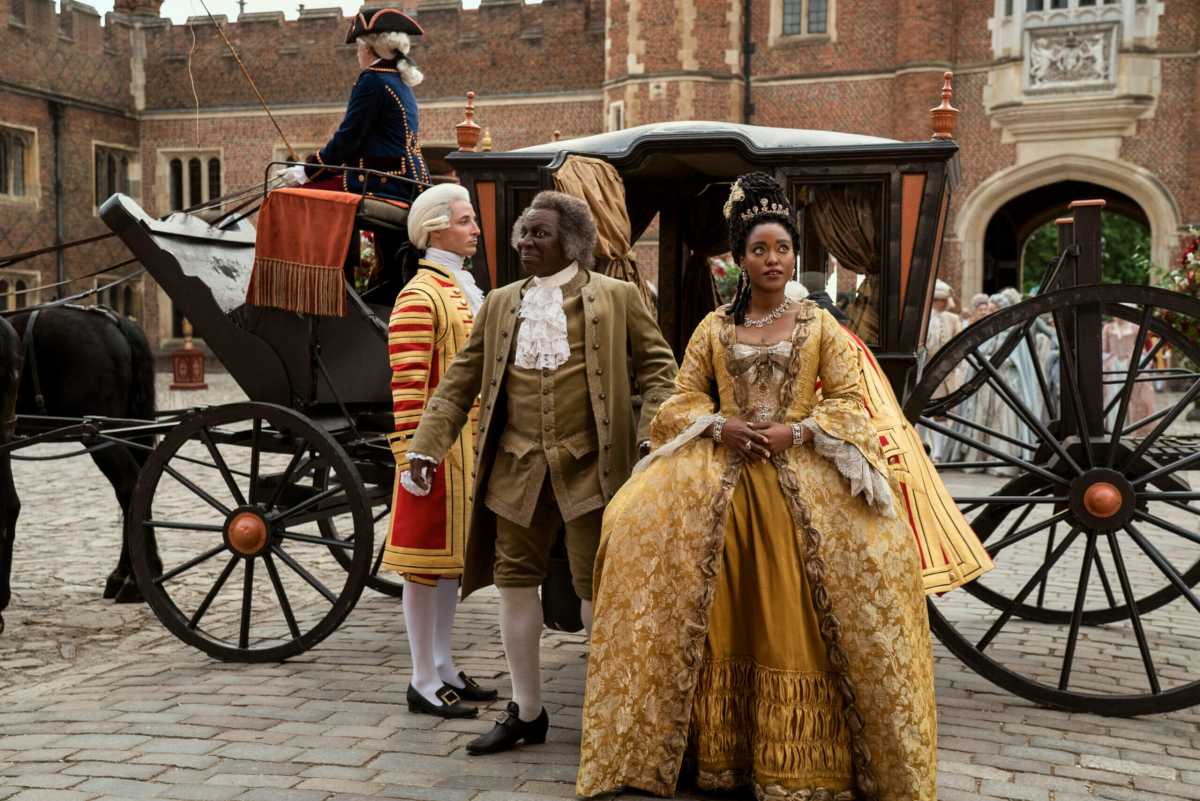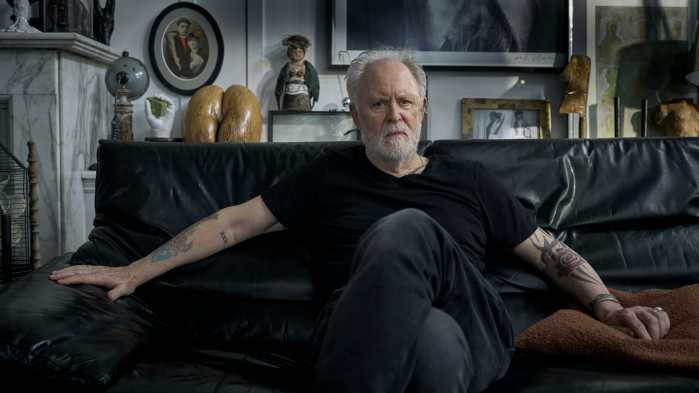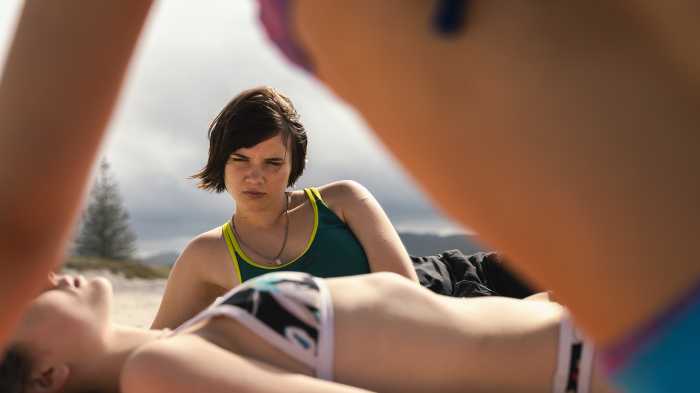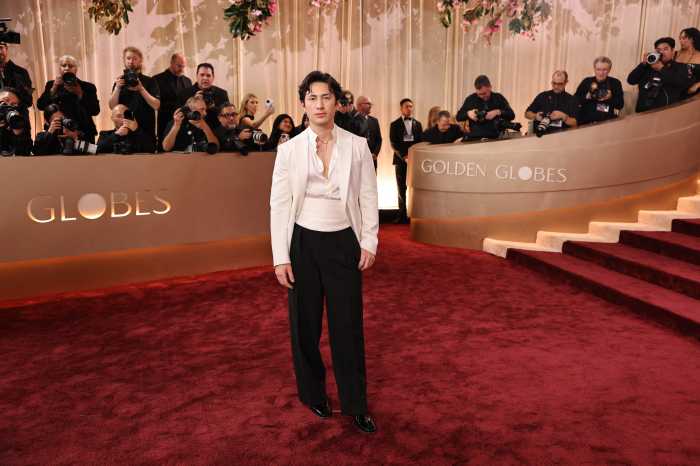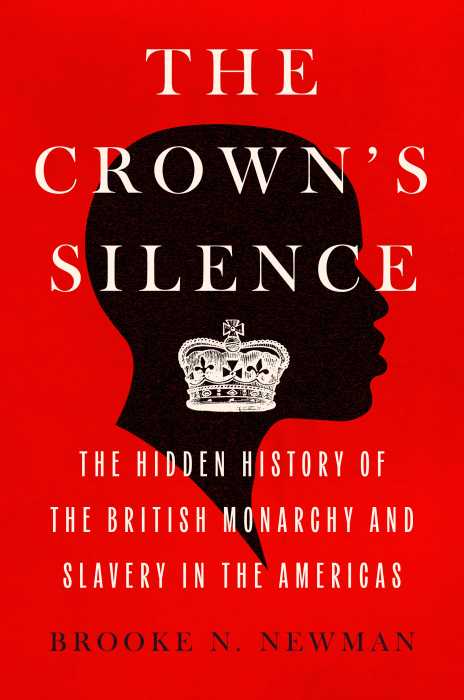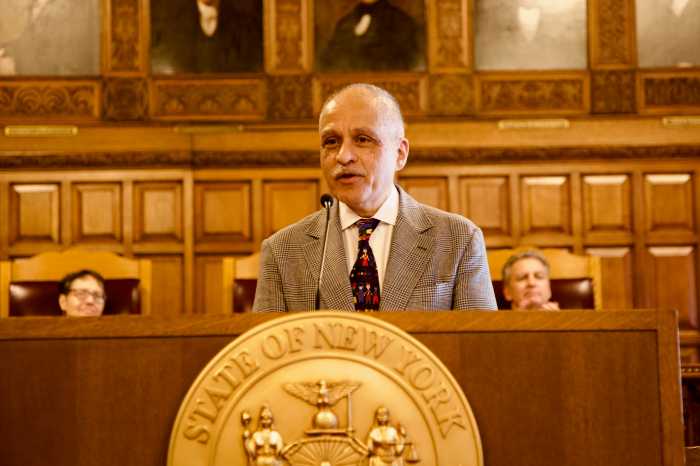There are a handful of interesting queer options available for streaming this month. From features and documentaries to a TV series, here is a rundown of what to watch:
“Nona and Her Daughters” (MHZ May 2)
This 9-part French TV series is a chaotic comedy as the 70-year-old feminist mother of triplets, Elizabeth (Miou-Miou), discovers she is pregnant! Nona, as she is known, is not disclosing who the father is, which perplexes her daughters, Emmanuelle (Virginie Ledoyen), Gabrielle (Clotilde Hesme), and George (Valérie Donzelli, who wrote and directed). The triplets arrange to live with Nona, but each has issues of their own. Emmanuelle is struggling in her marriage and dreams about and kisses Rosie (Léonie Simaga), a lesbian who works with Nona at a local family planning clinic. (Emmanuelle is filling in for the pregnant Nona).
Meanwhile, Gabrielle falls for Nona’s handsome midwife, Markus (Barnaby Metschurat), who also moves into Nona’s. George decides to write her thesis on her mom’s pregnancy after her advisor, André (Michel Vuillermoz) — who is Nona’s lover — rejects her original idea. “Nona and Her Daughters” also features a storyline involving Nona’s love for her friend Jacqueline, as well as another queer character. This lively comedy takes chances — characters break into song in one episode — but it will amuse viewers who appreciate its feistiness and its feminist messages.
“Queen Charlotte: A Bridgerton Story” (May 4, Netflix)
“Queen Charlotte: A Bridgerton Story” is a 6-episode prequel to the hit series (that toggles back and forth in time) with Young Queen Charlotte (India Amarteifio) betrothed to marry Young King George (Corey Mylchreest), whom she has never met. Moreover, there is pressure for her to produce a child/heir. (While everyone waits for the King and Queen to consummate their marriage, two male characters are involved in a secret, sexual relationship.) Queen Charlotte is quite headstrong, which is endearing, and her friendship with Agatha Danbury (out actress Arsema Thomas), one of her ladies-in-waiting, artfully addresses issues of racial equality. Likewise, attention is given to issues of power and gender as well as George’s madness. “Queen Charlotte” is an engrossing origin story and the performances by Amarteifio, Mylchreest, and Thomas are as appealing as the fabulous costumes and handsome sets.
“Borders of Love” (on VOD)
“Borders of Love” is a glossy Czech drama about polyamory. Hana (Hana Vagnerová) and Petr (Matyás Reznícek) are prompted to consider sex with other people after a friend discloses that she is having an affair, and another couple they know reveal they are swingers. Hana and Petr soon confess their fantasies to each other, and experiment being with other people. Petr even encourages Hana to pick up a guy she fancies at a bar. Soon the couple sets rules — such as no seeing someone twice — that Hana breaks after she has a shattering orgasm with Mark (Hynek Cermák). When Petr becomes jealous, issues of trust and infatuation start to splinter the couple. “Borders of Love” is well acted, and features several intimate (as in personal, not sexual) videos that Petr and Hana create as they navigate this new world. If the film is not queer, per se, it still offers some salient if familiar observations about open relationships.
“Huesera” (Shudder, May 12)
Bisexual director Michelle Garza Cervera makes an auspicious feature film debut with the Mexican horror film, “Huesera.” Valeria (an impressive Natalia Solián) and her husband Raúl (Alfonso Dosal) are excited when they find out they are pregnant. However, Valeria soon starts having strange experiences. She sees a neighbor jump out the window across the street — and yet, the broken body moves, then disappears. Did it happen, or was she hallucinating? Valeria pays a visit to a woman involved in spiritualism/occultism, who might be able to help her. But she struggles when she babysits for her niece and nephew, and senses an intruder, only to have bad things happen. Something is definitely wrong, and Valeria’s fragile mindset is not improved when she gets romantically involved with Octvavia (Mayra Batalla), an old friend/girlfriend. “Huesera” conveys the anxiety of impending motherhood with all the doubts and discomfort Valeria experiences, and Cervera features striking visuals and a nifty sound design) to give viewers an unsettling experience.
“Blue Caftan” (May 12, on VOD)
“Blue Caftan” is an exquisite slow-burn romantic drama from Morocco, a country where homosexuality is illegal. Halim (Saleh Bakri) is a maalem, a tailor who works painstakingly by hand. He sews gorgeous caftans that are sold in the shop he and his wife, Mina (Lubna Azabal), own. But they are behind in their work, and she is in ill health, which is why Halim is training Youssef (Ayoub Missioui), a handsome new apprentice, to learn this dying craft. The looks Halim and Youssef exchange are full of smoldering desire, and when they touch — as when Halim trains Youssef to cut a collar or guide a needle — it is downright erotic. “The Blue Caftan” subtly depicts the love that develops between Halim and Youssef, as well as Halim’s deep affection for Mina. How Halim grapples with his sexuality and his conflicted thoughts and feelings—he is periodically seen having anonymous sexual trysts with men at the local hammam—forms the heart of this poignant character study. Bakri makes Halim’s internalized guilt and shame palpable and Azabal and Missioui respectively deliver steely and sensitive performances. This is a tender, achingly beautiful film.
“Love to Love You, Donna Summer” (HBO/HBO MAX May 20)
This is a candid documentary portrait of Donna Summer, tracing her life and career and music from her early success to her death in 2012. Co-directed by her daughter, Brooklyn Sudano, and Roger Ross Williams, the film uses home movies, interviews, and archival and performance footage to celebrate and understand Summer who often reinvented herself. She “performed in character” on stage and shot goofy home movies with friends and family (some of which are seen in the film) and painted. She felt guilty putting her career first after she had her eldest of three daughters, Mimi, but she also wanted to prove that she was more than just a Disco queen. While the film recounts her chart-topping hits, awards, and achievements — she was the first Black woman with a video (“She Works Hard for the Money”) on MTV — there is equal time given to her hardships. Summer was abused by her pastor as a young girl, and had a volatile relationship with Peter Mühldorfer, who beat her. She also attempted suicide once. Her professional struggles included a lawsuit against Casablanca records, and, after she became Born Again, homophobic remarks she made that angered her gay fanbase. “Love to Love You, Donna Summer” captures the singer as she was in all her bravado and insecurity. If the film feels patchy in places, the music is still fabulous.

